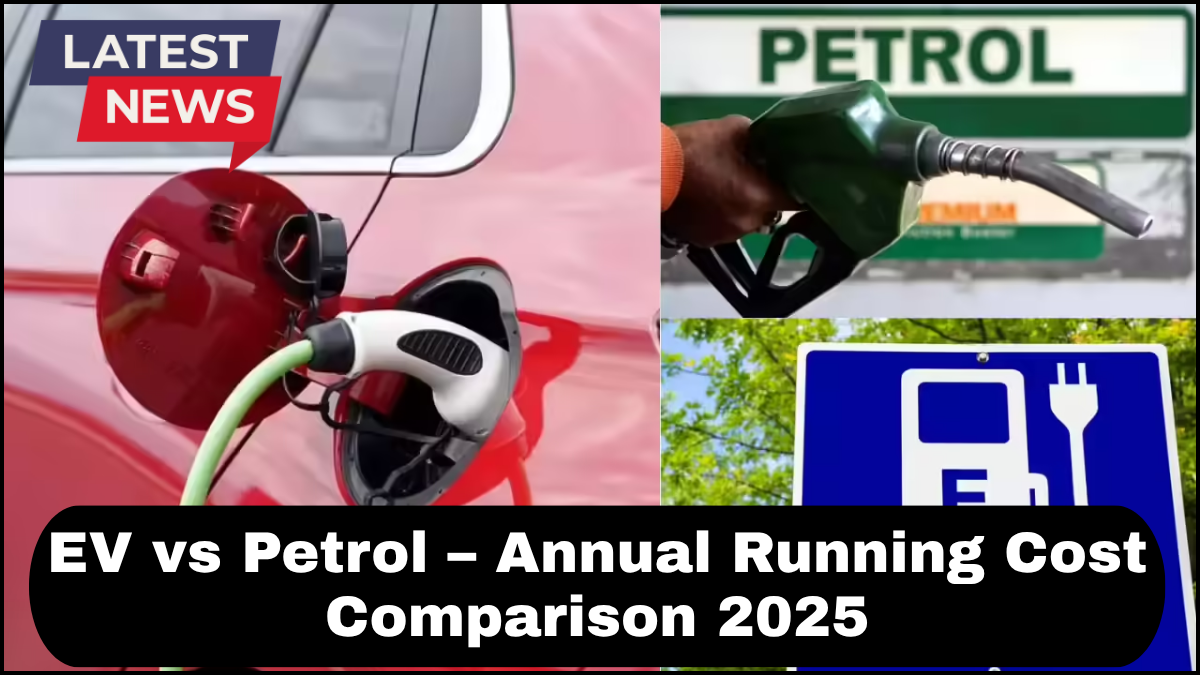As electric vehicles (EVs) become increasingly mainstream, many drivers are asking the key question: How do EVs compare to petrol vehicles in terms of yearly costs? In this breakdown for 2025, we analyze the EV vs Petrol maintenance cost 2025 and overall annual vehicle running cost to give a clear picture of what it truly costs to own and operate each vehicle type.

Purchase Price and Initial Investment
Electric vehicles often have a higher upfront cost than petrol cars, though this gap has narrowed in recent years. For example, in 2025, a mid-range electric hatchback may cost around $35,000, while a comparable petrol model could be around $28,000. Government subsidies and tax incentives for EVs can reduce this price gap further.
Charging vs Fuel Costs
One of the most significant differences in annual vehicle running cost lies in how each vehicle is powered.
- EV Charging Costs: The average cost to charge an electric vehicle at home in 2025 is about $0.13 per kWh. If an EV consumes 30 kWh per 100 miles and drives 12,000 miles annually, the yearly electricity cost would be roughly $468.
- Petrol Fuel Costs: Assuming a fuel efficiency of 30 miles per gallon and petrol priced at $4 per gallon in 2025, a petrol car traveling 12,000 miles would need 400 gallons, totaling around $1,600 annually.
Verdict: EVs offer a clear advantage in fuel-related expenses, saving over $1,000 per year in this example.
Maintenance and Servicing Costs
This is where the EV vs Petrol maintenance cost 2025 reveals its biggest contrast.
- EV Maintenance: EVs have fewer moving parts, no oil changes, and minimal wear on braking systems due to regenerative braking. Annual maintenance typically costs between $300 and $500.
- Petrol Vehicle Maintenance: Internal combustion engines require regular oil changes, transmission fluid, exhaust system checks, and more frequent brake pad replacements. Maintenance can range from $800 to $1,200 per year depending on mileage and condition.
Verdict: EVs significantly reduce service-related costs due to mechanical simplicity.
Insurance Costs
Insurance premiums vary based on region, provider, and vehicle model. In 2025, EVs still carry slightly higher insurance costs due to higher vehicle value and repair complexity. On average:
- EV insurance: $1,300/year
- Petrol car insurance: $1,100/year
However, some insurers offer EV-specific discounts, and repair costs are becoming more manageable as the EV market matures.
Depreciation
Depreciation can be tricky. Petrol vehicles often lose value faster due to tightening emission regulations and declining resale demand.
EVs, on the other hand, may retain more value thanks to improving battery longevity and increasing demand for used electric models.
Total Annual Running Cost Comparison (2025)
| Category | Electric Vehicle | Petrol Vehicle |
|---|---|---|
| Fuel/Charging | $468 | $1,600 |
| Maintenance & Service | $400 | $1,000 |
| Insurance | $1,300 | $1,100 |
| Total Annual Cost | $2,168 | $3,700 |
This table highlights how the annual vehicle running cost for EVs is significantly lower than that of petrol cars in 2025.
Additional Factors to Consider
- Environmental Impact: EVs produce zero tailpipe emissions, reducing your carbon footprint.
- Convenience: Charging at home saves time compared to frequent petrol station visits.
- Technology Upgrades: EVs often come with advanced infotainment and safety tech as standard.
Future Outlook
As battery production scales and EV technology becomes even more efficient, the total cost of ownership will continue to shift in favor of electric vehicles. Petrol cars will face higher running costs as fossil fuel prices fluctuate and more cities introduce low-emission zones.
Frequently Asked Questions
Q1: Are EVs cheaper to maintain than petrol cars in 2025?
Yes, EVs are notably cheaper to maintain due to fewer mechanical components and less wear on systems like brakes.
Q2: How long does it take to recoup the higher upfront cost of an EV?
Typically 3 to 5 years, depending on usage patterns, local fuel prices, and available incentives.
Q3: Does charging an EV at home significantly increase electricity bills?
Yes, but it’s still far cheaper than buying petrol. Charging an EV at home increases your electricity bill, but the overall cost is lower than fueling a petrol car.
Q4: What about battery replacement costs?
Most EV batteries are designed to last 8-10 years or more. Warranties usually cover this period. Battery costs are also dropping steadily.
Q5: Are EVs still worth it if I drive less than 10,000 miles a year?
Yes, especially if you factor in maintenance savings, environmental benefits, and fuel price stability.
click here to learn more